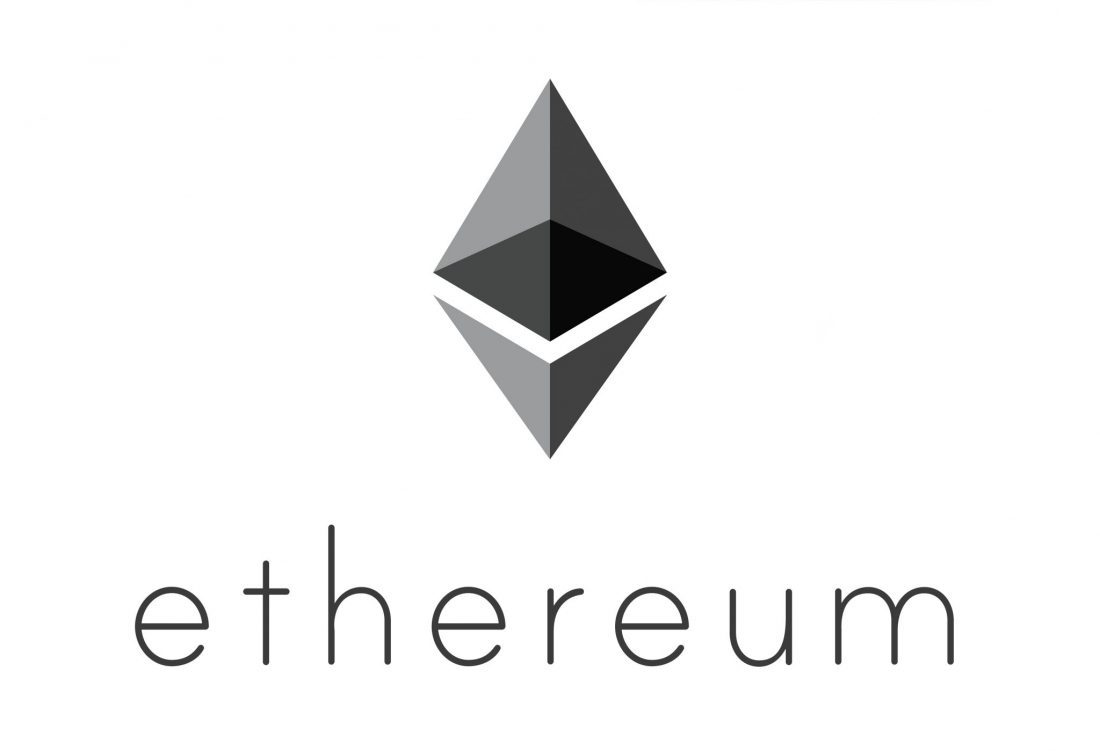
Beginners guide to ethereum
History of ethereum:
Ethereum was proposed in late 2013 by Vitalik Buterin, a cryptocurrency researcher and developer. This was financed by an online crowd sale that took place between July and August 2014.
Ethereum was launched in 2015 on the 30th of July with 72 million coins minted, and since then has become the world’s programmable Blockchain. Ethereum was created based on the need for a new age of internet, like other Blockchains, Ethereum has a native currency called ether(ETH). ETH is a form of digital money; ETH has many of the same features the Bitcoin possesses.
In 2016, an outcome of a certain exploitation of a flaw in project’s software which subsequently led to a theft of about $50 million worth of ether. Ethereum was then split into two single Blockchains. These new separate chains became Ethereum(ETH) with the theft reversed and the original chain continued as Ethereum Classic (ETC).
Ethereum is presently emerging and preparing to apply a chain of upgrade called Ethereum 2.0. Current specifications for Ethereum 2.0 include an increase in transaction and an evidence of stake.
What is ethereum:
Ethereum is an open-source network that uses Blockchain know-how to generate and run decentralized digital applications.
Ethereum is an internet where money and payments are built in. An internet in which users can own their own data, and apps do not snip or spy on you.
This is a form of internet in which everyone has an access to an open financial system, this is an internet built on free-access infrastructure and it is not organized by any company or individual.
The native currency which Ethereum uses; ETH. ETH is purely digital and can be sent to anyone in any part of the world in an instant. The adequate and quick supply of ETH is not controlled by any government or individual. It is decentralized and it is rare.
Just like other cryptocurrencies, the validity of each Ether is provided by a Blockchain, which is an increasing list of records called blocks, which are connected and protected using cryptography. Unlike Bitcoin, Ethereum runs using financial records and balances in a manner called state transitions. Ethereum accounts are pseudonymous in that they are not linked to individual persons, but rather to one or more specific addresses.
All over the world, ETH is used to make payments, used as a store of value, or also as a means of collateral.
However, unlike other Blockchains Ethereum can do way more. It is programmable, which means it can be used to build new kinds of applications.
How does ethereum work:
Ethereum allows users to make agreements and conduct dealings directly with each other to purchase, sell and trade goods and services without a middle man.
Ether which is the vital token for operation of Ethereum, offers an open distributed ledger for transactions. It is an element of computation used in trades and other state evolutions.
The ETH is traded on cryptocurrency exchanges, and it is also used to pay for transaction fees and computational services on the Ethereum network. Unlike the Litecoin which is cryptocurrency through and through, the Ethereum is a little smarter than that. The Ethereum is a platform that can facilitate Ether transactions in its own right.
These decentralized applications gain the benefit of cryptocurrency and Blockchain technology. These applications are trustworthy and probable, this means that once they are uploaded to Ethereum, they run as programmed.
They can regulate digital assets in order to build new types of financial applications. These applications can be decentralized which makes no single entity or individual can control them.
The Ethereum community is the largest and most active Blockchain community in the world right now. It includes a team of core protocol developers, cryptoeconmic researchers, cypherpunks, mining organizations, ETH holders, gamers, app developers, fortune 500 firms and, as of now, you.
Ethereum is sustained and enhanced over time by a diverse global community of contributors who work on everything from the core protocol to consumer applications. The Ethereum was built by a collection of people working together. The Ethereum scheme objectives is to behave in a similar way to the internet, while trying to be a decentralized app store at the same time.
Ethereum is used for smart contracts while Bitcoin and Litecoin are used as a peer-to-peer currency.
Is ethereum safe and legal:
The answer is that Ethereum in itself is more secure than you might think, but using a decentralized app that hasn’t been vetted properly could leave you and your Ether compromised. But what is life without risks.
Investing in Ethereum is risky, so is every venture. But it could be potentially lucrative. Unlike Bitcoin or Litecoin, companies are using Ethereum the new age internet as a building block, something more akin to diamonds than gold.
Financial markets often have over 50 years of data to look at, which the crypto currency markets don’t. However according to CoinKir, the price of Ethereum is going to do effortlessly well in 2020. Their prediction is that Ethereum will go from a very high amount and slowly increase.
Ethereum has better technology and provides more uses than any other cryptocurrency. Ethereum uses more cases than other currencies and therefore it serves a bigger purpose. Ethereum is indeed a better alternative to other cryptocurrencies.
Ethereum is a smart contract platform which has more utility while Litecoin is an older project and has more payment utility. However, Ethereum has more utility than just a payment protocol. Investing in both Ethereum and Litecoin brings amazing possibilities.
There is never a sure way to get rich quick, but investing in Ethereum can get you there sooner. If you are looking to make money, Ethereum is a good bet. Ethereum does for programming what Bitcoin does for payments. Ethereum is completely safe an ensures the fast returns of investments, and a safe bet for developers too.
Litecoin may be the older project and has more payment effectiveness than the Ethereum, however the Ethereum is a smart contract platform which has more value than being just an imbursement protocol.
Just like trading with other cryptocurrencies which promise its safety, Ethereum is fully secure and legal. It works based on the system of the new internet, and provides full safety and easy access to buyers and traders of goods and services in any part of the world.
Ethereum has been said to have fared better than other cryptocurrencies. An accurate statistic which was given states that if you invest N1 million in Ethereum in early January, that investment will be worth a whooping N45 million today.
Trading with any form of cryptocurrencies are like trading precious metals. Money is gained from all forms of cryptocurrencies when the prices go up and that is determined by the laws of demand and supply.
To avoid any form of risks or loss of investment, buyers and sellers of all forms of cryptocurrencies have their own form of exchange rates. So you must take precautions to ensure you do not get caught up in an exchange rate loss. The Bitcoin and Ethereum are perhaps the most popular cryptos out there, where they are over a 1000 cryptocurrencies around the world. This does not imply that in all cryptocurrencies, there are positive gains for every coin out there. That is why the Ethereum is the best bet for you.

What are the advantages:
Ethereum platform benefits from all properties of the Blockchain technology that it runs on. it is wholly immune to any interventions from a third party, which means that all the decentralized apps within the system cannot be controlled by anyone. The Ethereum is not just a digital currency but a Blockchain centered structure that ranges of features including smart bonds, the Ethereum Virtual Machine(EVM) and Ether.
The Ethereum makes use of the Blockchain technology to transfer money in quick successions from one address to the other in due time. The Ethereum uses its Blockchain to achieve a range of diverse types of dealings known as smart contracts. A smart contract is a system of computer protocol projected to digitally implement a negotiated contract, they create allowance for the perfect transactions without the input of third parties.
Ethereum is not a self-locked system. This means other goods and services can grow continuously with the ETH Blockchain and more people start to invest.
It is also a well-planned project. Cryptocurrencies are so impulsive and tend to die off quickly after a period of time, well reverse is the case with the ETH. There is a strategy in place for the next 3-5 years, this enables stockholders to understand the modus operandi of this Blockchain.
It also operates as an open system which is a huge advantage as everyone from outside can join this project, and makes it easier to develop this community and improve on it.
People from all parts of the world can engage in transactions and can exchange goods and services at an incredible rate through a smart contract. The general objectives of a smart contract are to satisfy contractual conditions such as payment terms, liens, confidentiality and enforcement. And it also reduces the need for trusted intermediaries.
Another advantage is the EVM which is completely isolated from the rest of the Ethereum network and serves as perfect testing ground for developers to execute codes. Developers can enhance the application and smart contracts and assess then on the EVM to identify errors and bugs that could result in the nullification of smart contracts. This tech environment provides an access to unlimited opportunities for developers to study, expand and build highly robust smart contracts before applying them to the real Ethereum network.
Ether which is confused for Ethereum sometimes serves as “fuel” that enables the actions of decentralized apps built on the Ethereum Blockchain. Every transaction performed requires some form of computational power and time. Miners are paid for fulfilling the computational workload and Ether is used as payment. The greater the computational workload, the greater the pay which is the Ether.
All Ethereum Blockchain transactions are immutable, this means once the data is written it is irreversible, and therefore makes it impossible to hack. Not even the uploader can edit the data once its uploaded.
The Ethereum Blockchain is decentralized, this means there is no need for an intermediary to perform any action. Smart contracts are self-executed.
Ethereum transactions are fast, instead of going through lengthy manual verifications and clearances, the automation of Blockchain transactions guarantee the entire process is considerably faster. It also tends to be a whole lot cheaper because third party fees are not considered.
The transactions on the Ethereum Blockchain are cryptographically ensured and all transactions on the Ethereum are verified. Any form of hack associated with the Ethereum is as a result of the poorly coded smart contracts by the platform’s users rather than the secure Ethereum Blockchain itself. Ethereum announced last year their plans for a transition to proof-of-stake which would make the platform even more secure.
The Ethereum is reliable and has proven itself to being a reliable platform for over three years. It has been an active Blockchain and applications built on the platform run exactly as coded, eliminating all prospects of interruption, censorship, scam or third-party intrusion.
Other than all the benefits of the Ethereum, its biggest advantage is its adaptability. An astoundingly versatile range of applications can be built on the Ethereum Blockchain.
The Ethereum brings an idea in which anything computable can be computed with enough given resources. It essentially runs on any code a normal computer can run on.
Ethereum deals with contract code and data in addition to keeping a balance. Without having to get too technical, these two functions enable any business to produce decentralized applications and implement smart contracts. An overwhelming majority of coins out there are coins built on the Ethereum platform.
Ethereum has played a key role in conveying some remarkable new cryptocurrency schemes to the market. Ethereum has so many advantages and provides a secure environment for every Blockchain trader.
Disadvantages of ethereum:
Just like every platform, there are always some uncertain drawbacks, but these never determines the function of any platform, these are only temporary setbacks than can be improved on.
The Ethereum has too many platforms, it tends to be the biggest minus to the cryptocurrency. It is a platform that operates as a ledger, a smart contractor and much more. It leads to the weakness of this platform. Litecoin unlike ETH, is devoted to completing only one function.
There can also be some breakdowns in the scheme. Sometimes in order to advance this project to a new level, this Blockchain will swing from being proof of work to proof of stake. It is not always easy to alternate the system so easily, if this modification does not go well, it can lead to a whole system crash. This is a huge disadvantage due to the fact that there are investors and goods and services that can suffer from this system crash. This is one of the risks one must take and also a huge setback.
The Ethereum Blockchain can be unstable due to the changes it is still undertaking; this includes moving the consensus method from PoW to PoS.
The Ethereum platform does not contain enough tutorials. This may seem to be a minor difficulty, but it is not. It is always so difficult for newcomers on this platform to start working with the ETH Blockchain, and thereby it worsens it by not making available essential tutorials to guide the newcomers. They can only find some elementary files online; this is why many investors can’t engage in this project.
Since the tokens are based on Ethereum Blockchain, there is almost no say in the imminent progress of these tokens. The decision to use ERC20 should be centered on the application.
The Ethereum which uses smart contracts hold tremendous power, but they have their limitations which could also serve as a disadvantage. Note that these programs are mostly as good as the people designing them. So far, many smart contract structures have failed due to unpredicted events that were never part of the original scheme. In some cases, they are technical errors that can be definitely spotted and fixed in due time. However, the latest rush to use Blockchain technology for everything, we are likely to experience more faults as people tend to fail to understand the restrictions of this technology.
Like all systems, smart contracts are only as good as the data they act on. A smart contract that receives bad or incorrect information from the network will still execute. This can be serve as a huge issue to Blockchain systems, as most transactions initiated by a human or smart contracts are agreements written into code between different parties. The outcome of these contracts are usually triggered automatically.
These disadvantages stop so many people from investing in ETH. However, for Blockchain to really have a supreme business effect, both its advantages and setbacks must be addressed.
Popular
-
Exploring Cardano Cryptocurrency: An Overview
Cardano is a cryptocurrency that was created in 2017 by …

-
Crypto Jackpots: The New Big Wins in Online Casino Gaming
In the ever-evolving realm of online gambling, the advent of …

